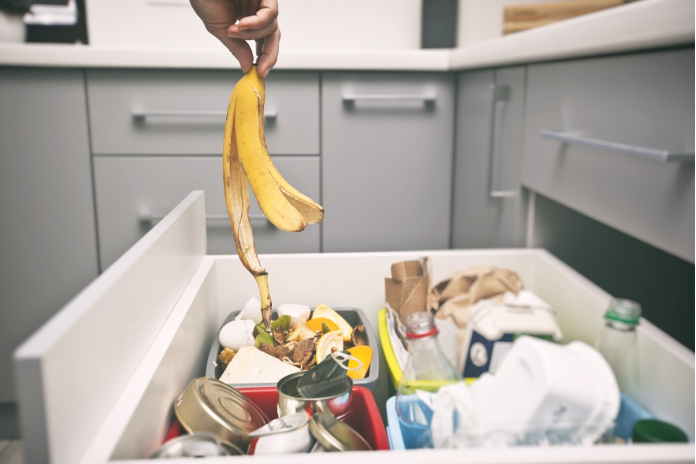
The truth is that the United States is the global leader in food waste. Americans discard more than 40 million tons of food every year. That equals to 80 billion pounds of food waste, which further equates to
- $161 billion revenue loss
- 219 pounds of waste per person, and
- 30% to 40% of the US food supply.
Most of this food waste takes up 19% of all landfill space, making it the single-largest class of landfill garbage.
From homes to farming to grocery stores to restaurants, Americans need to focus on food waste management techniques to lessen their carbon footprint and environmental impact. Luckily, there are easy and most effective ways to manage or reduce food waste.
11 Easy Ways to Manage and Reduce Food Waste
Tips for Business Owners
1. Convert Food Waste Into Animal Feed
One way of recycling food waste is by using them as animal feed for animals like cattle, sheep, and pigs.
2. Consider Food Composting
Food producers can solve their food waste problems by implementing an effective composting strategy. By investing in a food waste composter, you not only reduce waste but also save money on outsourcing the compost production.
3. Reduce Overproduction
Some production techniques contribute to the culture of overproduction, which leads to waste. So, the simplest way to reduce food waste is to reduce production.
4. Produce Products From Food Waste
Many useful products, such as biofuels and liquid fertilizer, can be manufactured from certain food waste. Also, the leftovers of one company can be used as food scraps by another industry.
5. Donate Food
If the excess food is still safe to eat, it can be given away to the hungry and poor people who cannot afford food in today’s high priced economy.
Tips for Consumers
6. Make a Shopping List
Making a list of things you need will not only speed up your time in the supermarket, but it will also keep you focused and avoid impulse buying.
7. Plan Your Meals
Meal planning is another good way to reduce food waste. You know exactly what ingredients you need for the week. Remember, whatever you buy must be used. So, before you head out to the supermarket, plan your meals. Otherwise, you’ll end up buying things you already have at home.
8. Grow Your Food
If you want to contribute to green investment, consider buying locally-grown food. Better still would be growing your own food. You can start by planting vegetables and herbs, which you use in your daily cooking. Growing your own food is a great way to reduce your carbon footprint.
9. Experiment With Food
Get creative in the kitchen. Use random food items that you already have in the kitchen to cook up a surprise for your family.
10. Use Everything
When you buy more food than you need, it’s guaranteed food waste. Don’t stockpile food; it isn’t necessary. Use everything you have before you consider buying more. Making a tasty vegetable broth is the best way to use up all you have and also reduce food waste.
11. Store Correctly
How the food is stored also has an impact on how much food is wasted. Many people do not store foods like vegetables and fruits correctly. This can lead to premature ripening that eventually causes them to rot. For example, vegetables like cucumbers, onions, tomatoes, garlic, and potatoes should be kept at room temperature and not refrigerated.
Start Reducing
Food waste is ending up in landfills at an alarming speed. It’s a terrifying issue, but if you look at the brighter side, it is easy to overcome. There are so many things that business owners and consumers can do to help reduce carbon footprints. So, spread the world. Make people aware. We have a job to protect our environment and preserve it before it’s too late.
Author Bio: Erich Lawson is passionate about saving the environment through effective recycling techniques and modern innovations. He works with Compactor Management Company and writes on a variety of topics related to recycling, including tips and advice on how balers, compactors and shredders can be used to reduce industrial waste. He loves helping businesses understand how to lower their monthly garbage bills and increase revenue from recycling.

